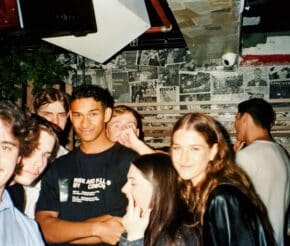- Advertise
-
Subscribe
Breaking the Door Policy Code
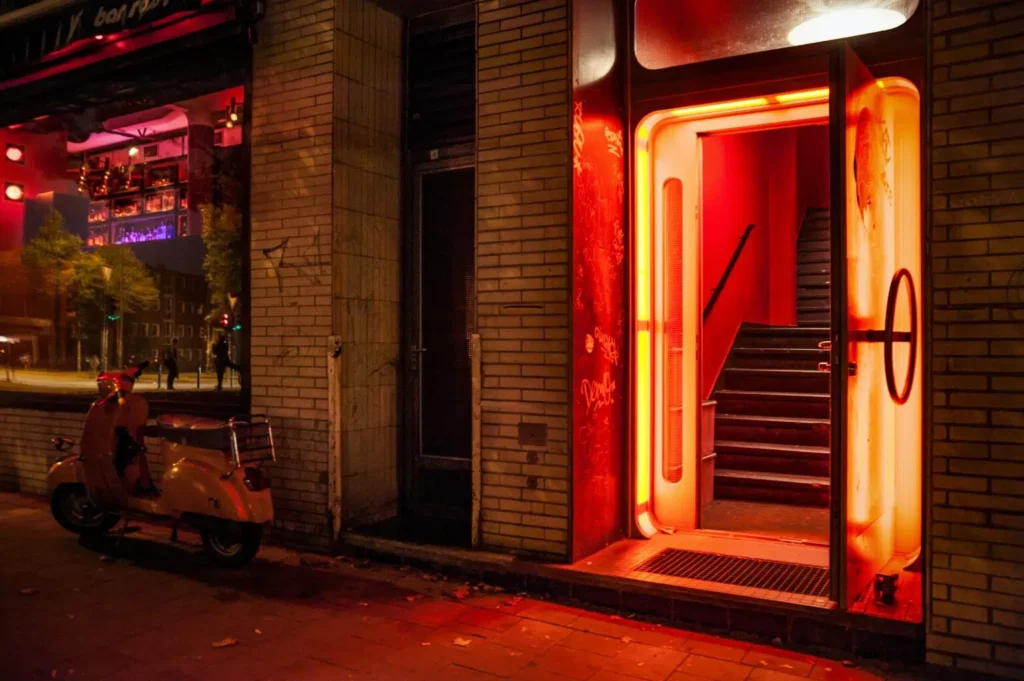
In the nightlife realm, no heartbreak hurts more than the disapproving head shake coming from your ultimate crush – the club’s doorkeeper. But, quite frankly, as long as there have been clubs, there have been notoriously choosy door policies.
Overseen and implemented by the gate’s guardians, these erratic and seemingly indecipherable protocols on who is getting in and who isn’t have been separating revelers from the clubs’ escapism since forever.
Door picking guidelines come in all shapes and sizes – from meat market venues with an inveterate antipathy for five-figure shoes to the exclusive clubs with members-only fob-offs as their ultimate holy grail.
Not to mention the allegedly hippie venues, where your only chance in making the cut is the “I am a junkie who survived a three-day bender” look.
If you are a true reveler at heart, you’ve already caught the drift of your average clubbing mecca door picking code. It’s a seemingly open-door policy, sprinkled with affable rejections for those who downed enough doubles to act like a boxing player after a feast of steroids.
While in most elite clubs looks or wealth – or a combination of the two – is a secure shoo-in, some door policies seem arbitrary enough to be uncrackable.
Being the world’s wealthiest man isn’t a secured ticket
At least this is what Twitter’s owner-in-waiting Elon Musk demonstrated last month when he failed the infamous Berghain vibe check. “They wrote PEACE on the wall of Berghain! I refused enter,” the Tesla founder tweeted in the early hours of a Sunday morning.
Although it is unclear whether the lettered sign sent Musk into so much rage that he didn’t want to pass the club’s doors or the bouncers barred him from the entry, a brief memory refresh of the club’s DIY ethos will make the latter a more plausible scenario.

Money might open all doors, but it seems like Berghain has a bullshit-proof vest against this cheap cliché – even when the world’s richest person joins the ranks of the techno temple’s neverending queues.
It might have been his Dad polo shirts, constant Twitter feed checks, or the fact that he is using monkeys as lab rats – we will never know what made the club’s door crew say no to a billionaire playboy whose fortune could buy out a hundred Berghains.
Getting into Berghain feels like being accepted by Harvard
One thing is for sure – when it comes to brutal door policies, the legendary Berghain reigns supreme. Every weekend, as dawn breaks over the German capital, a seemingly endless queue of avid techno lovers curls back from the bulking shell of a refurbished Communist-era power plant.
For those who never reached its end, the face of the mighty gatekeeper guarding the techno capital’s industrial doors would have remained shrouded in mystery.
If he wouldn’t have been the world’s most notorious bouncer, that is.
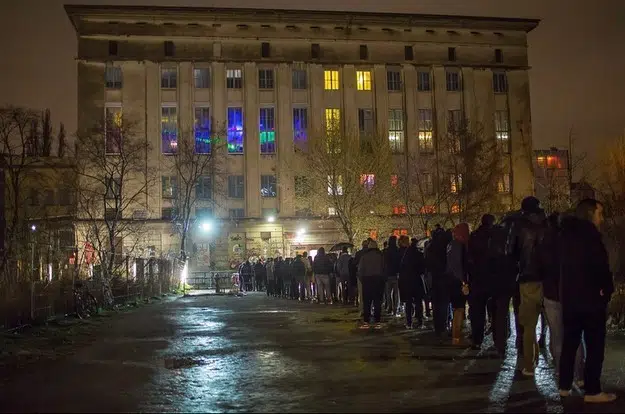
Stone-faced Sven Marquardt acts as the grand judge whose primary mission is to decide tonight’s fate for countless hopeful clubbers. The iconic barbed wire tattoo crawling on his face had informed anticipated denial – or, rarely, admission – for the sweaty newcomers and techno devotees whose worst nightmare is being told to step aside.

There is no poster hanging on Berghain’s concrete walls that would shed some light on the dress code.
Nor is there any official info that would elucidate the mystery of the do’s and don’ts that will potentially get you passed the doors.
Not to mention that in Berghain’s industrial kingdom, the comforting claw of bottle service, guest list, and reservations won’t be there to catch you.
The unspecified entry requirements’ notoriety is part of the reason why revelers queue up for as long as three hours at a club where the rejection rate can get as high as 60%.
As bitterly exclusive and absurdly subjective as it might sound, your one-way ticket inside Berghain’s hedonistic craze depends on the door crew’s gut feeling about you.
Like it or not, you are pretty much judged by the things one can’t fully fake – appearance and vibe.
Door policy is as biased as it gets
While there is an overabundance of spineless subreddits and forums littering the internet – yet fueling the club’s forbidden fruit status – that speculate on the tips and tricks that might get you into Berghain, Marquardt said the door picking process is “subjective” in his Q&A with GQ.
“It’s subjective. Only a few of my guys are allowed to select guests at the door. They have to understand what Berghain is all about first, and I try to give them that foundation. Beyond that, there are no set rules.”
But Berlin’s techno temple wasn’t the first one to make its hoards of aspirant clubbers feel increasingly anxious as they progressed in the queue. Forty-something years ago, New York’s Studio 54 was the trailblazer for a brutal and seemingly indecipherable door dictatorship.
One wouldn’t expect less from a celebrity playground where Cher, Elizabeth Taylor, Andy Warhol, and Salvador Dali were all fellow regulars.
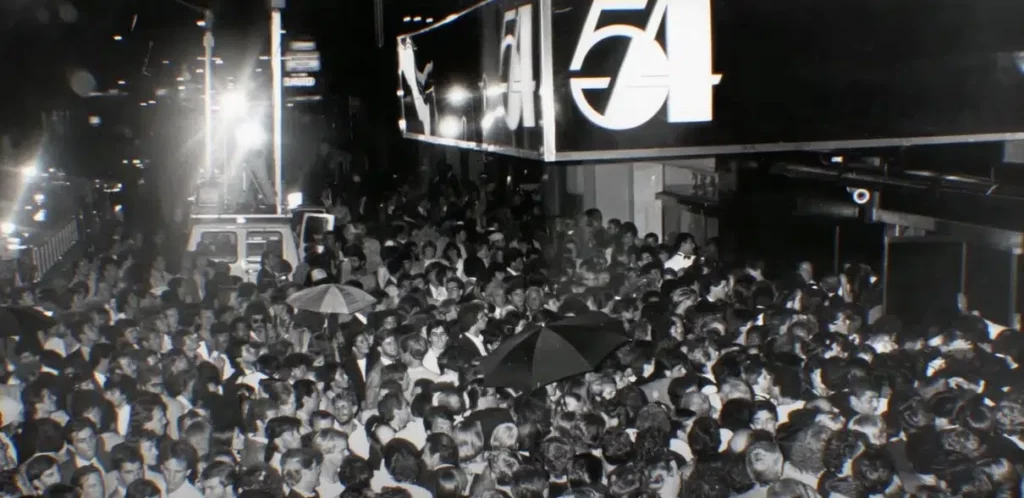
In its short lifespan of 33 months, the disco delirium’s epicenter created the first non-judgmental, LGBTQ-friendly safe space where painters, singers, and actors could shake their tail feathers in unison.
Inclusivity reigned on the dancefloor, but an unflappable exclusivity ruled the door entry. Celebrities were smuggled through a private backdoor entrance while the general public lined Manhattan’s Red Light District streets, daydreaming of getting the chance to pay for the entry.
If you weren’t Cher or part of The Rolling Stones, getting selected as a clubbing candidate was a nearly impossible mission.
Even disco legend Nile Rogers was refused entry – the sour humiliation ultimately gave birth to one of his most successful tracks, Le Freak, whose lyrics were aimed at the club and its door policy. To get inside the world of disco divas and cocaine mountains, you had to contribute to a motley crew of clubbers through your fashion choices and icon status.
Giving up on life for a clubbing night is a real – and literal – thing
People would die to pass the exclusive club’s velvet-roped door – literally. The level of desperation was so high that a man tried to sneak into the club illegally by crawling through an internal vent. Later on, when the club got raided, he was found dead due to suffocation.
“The key of the success of Studio 54 is that it’s a dictatorship at the door and a democracy on the dance floor.”
In the Studio 54 documentary, co-owner Ian Schrager admitted that bouncers would often split up couples in the queue based on the “who’s better dressed” criteria. “We didn’t want people with polyester shirts,” he said in the documentary.
The film also captures Schrager’s partner in crime, Steve Rubell, having fun telling the hordes of aspirant clubbers that tonight is a no-no. “That hat, don’t ever come in with a hat,” Rubell says.
But, as Andy Warhol once said, the brutal door policy was part of the club’s allure.

What brings Studio 54, Berghain, and all clubs with brutal door protocols at their core in the same category is their dedication to what Studio 54’s gatekeeper Marc Benecke called “making a salad”.
We might loathe them, but door policies fulfill a reputable mission – guarding the promised land against unwanted intruders by curating the look and size of the crowd.
That duty alone gives you the answer to cracking the door policy code. You have to match the club’s vibe while staying true to yourself – a balance hard enough to strike for most clubbers to never achieve.
Respecting the dress code, being polite, and not downing a bottle of wine before queueing up are all part of the old cliche that (partially) grants us admission in music meccas.
So, what’s the catch?
That doesn’t mean we shouldn’t play by the rules – it just means we should trust the bouncers’ divine skills of curation. If Sven Marquardt asks you to step aside, it’s not because you don’t have enough tatts or your hair’s too basic. It’s because you can’t handle what Berghain has to offer – and Marquardt can tell that just by looking at you for a few seconds.
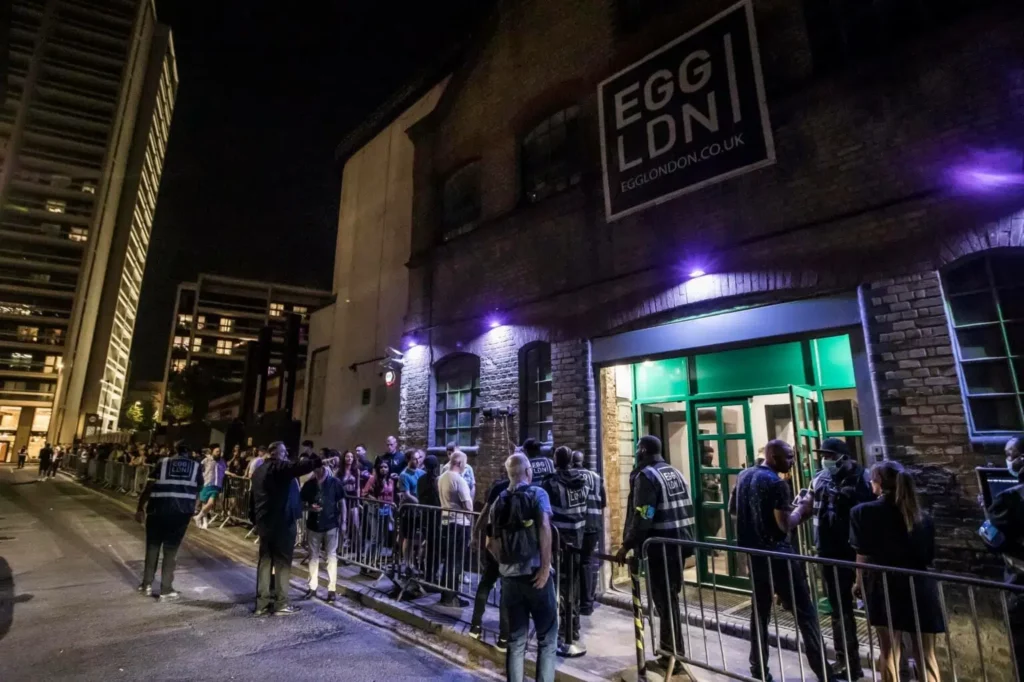
Clubs are on a constant hunt for the perfect recipe when it comes to clubbers – be it the odd clerk in a double-breasted suit vibe or the Gucci-Prada bimbo feel. It is all about the kaleidoscopic mix of revelers who, when combined, mesh seamlessly.
But that doesn’t change the intensity of relief, euphoria, and approval that washes over you whenever you get the nod from the bouncer. In all honesty, getting past the doors of a club known for being uber-picky feels like getting into your dream college.
You might not have been the clubber typology the door crew was looking for this Saturday. But who knows, maybe next weekend you will be the right person seeking admission.
Your chances renew next weekend – and the good news is there is always an upcoming weekend.


